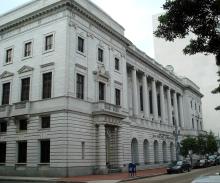Sludge, Lawsuits, and the Digital Divide: Unpacking the Latest Broadband Battles - Episode 655 of the Community Broadband Bits Podcast

In this episode of the podcast, Chris and Sean dive into three key issues shaping the broadband landscape.
First, they celebrate the Supreme Court’s decision to uphold the Universal Service Fund and explain why it matters for schools, libraries, and low-income communities.
Then, they take aim at corporate “sludge”—the deliberate barriers big companies use to frustrate customers—and how it reveals the importance of local broadband options.
Finally, they unpack a promising new lawsuit filed by 21 states and D.C. challenging the Trump administration’s move to cancel Digital Equity Act grants, pushing back to defend federal broadband funding.
Click here to check out the Atlantic story discussing Customer Service and "Sludge".
Click here for more information about the lawsuit filed by 21 states and D.C. challenging the Trump administration’s move to cancel Digital Equity Act grants.
This show is 33 minutes long and can be played on this page or via Apple Podcasts or the tool of your choice using this feed.
Transcript below.
We want your feedback and suggestions for the show-please e-mail us or leave a comment below.
Listen to other episodes or view all episodes in our index. See other podcasts from the Institute for Local Self-Reliance.
Thanks to Arne Huseby for the music. The song is Warm Duck Shuffle and is licensed under a Creative Commons Attribution (3.0) license





